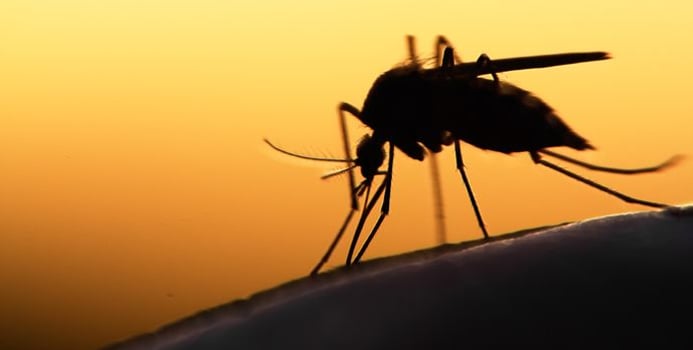With long summer days behind us and cooling temperatures approaching, the much-loathed mosquito season is drawing to an end. This is comforting news for those who live where Eastern equine encephalitis (EEE), a rare mosquito-borne virus, was a more prevalent threat than usual this year. If you have never heard of this devastating illness, here is some basic information you need to prepare yourself for the start of next mosquito season.
What is EEE?
Like the more well-known West Nile virus, EEE is an arbovirus that affects primarily horses and humans and is spread by mosquitoes. It is typically found in the northeastern United States as well as along the Gulf Coast and Great Lakes with a few cases in Canada. Most human cases tend to occur before the middle of September, but some infected mosquitoes persist until the first hard frost of the season.
When they are infected, some people are asymptomatic or sickened with a mild, flu-like illness with chills, fever, and fatigue. Those who experience mild symptoms without any nervous system involvement usually recover completely within two weeks. Others develop much more serious neurological symptoms including brain swelling, seizures, and convulsions which can lead to a coma. EEE has a fatality rate of about 30% in those who develop encephalitis and many of the survivors experience lifelong neurological issues.
Fortunately, EEE is very uncommon but the number of infections spiked in 2019, partially due to an increased population of mosquitoes. In a typical year in the United States, an average of seven cases of EEE is reported each mosquito season. So far this year, EEE has infected 35 people from seven states and 13 of them have died. The majority of human cases this year were reported in Massachusetts and Michigan but the virus also sickened people in Connecticut, North Carolina, New Jersey, Rhode Island, and Tennessee.
Preventing EEE
Since there is no human vaccine to prevent infection with EEE, the most effective way to reduce your risk is to avoid mosquito bites. When you are outside, use insect repellent containing DEET or Picaridin which are effective and safe for everyone including pregnant and breastfeeding women. You should also wear long-sleeved shirts and long pants when possible and take steps to control mosquitoes in your home and outdoors. Remove any standing water which can be a mosquito breeding site and consider using insecticides around shrubs, grasses, and the foundation of your home.
[Image via Shutterstock]



